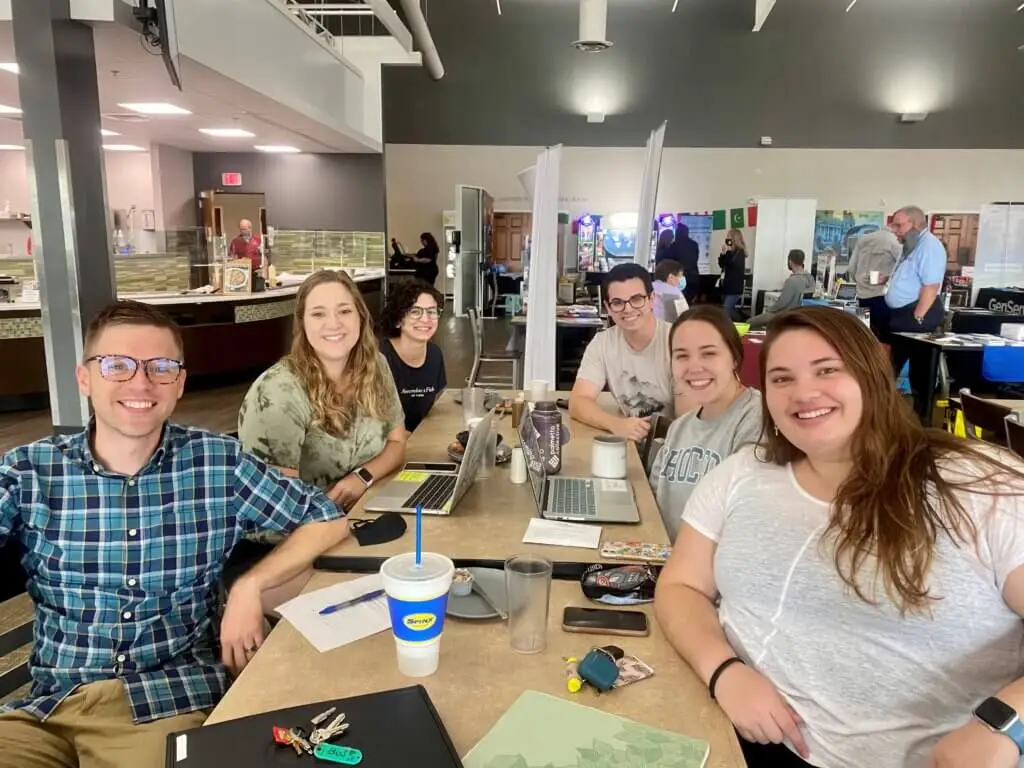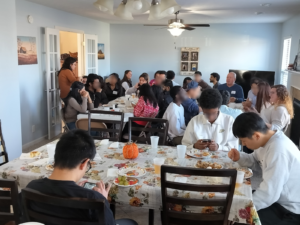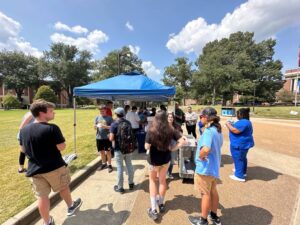About a year ago, I transitioned to the University of Memphis and one of the first things I learned was how different ministry dynamics can be on a large commuter campus. A commuter campus is simply one where most students live at home or in an off-campus apartment and commute to their classes daily. Even though some students live on campus, most students drive to school from their houses every day to attend class and are working jobs off campus as well.
Reaching commuter students can really seem like a daunting task, but I have learned that it is not an impossible one. It just takes some strategic planning, passion, and a good perspective on knowing your campus. It is important to remember that commuter students are just as important as anyone else and need the hope of Christ that we have to offer them just as much as any other student. At the end of the day, these students really do desire to be involved, even if their schedules seem busier and less flexible.
Commuter students’ schedules look very different from those at a campus where the majority of students live on campus so methods to reach them must be different and creative as well. Here are a few tips to keep in mind and encourage you as you reach commuter students:
1. Understand their schedules are different.
Many of these commuter students are still living at home, but often they are working at least one job, sometimes two. They are trying to balance school, work, relationships, community, and other extracurricular things they are involved in. Commuter students are often only on campus for a short period of time before they need to head to the next thing. They have a lot going on and balance is sometimes a struggle for them. Many students say to me, “I want to participate and be involved, but I just don’t know if I can commit at the moment.” I really do believe they want to be involved, but sometimes they just don’t know how to balance all of their responsibilities. As a campus ministry, we can come alongside them and help them as they make this transition, form community, and balance work and college life.
2. Commuter students still need community.
Not only do commuter students still desire community just like any other college student, but many of them desire mentorship and discipleship as well. We recently sent out a google form to new students that would be attending University of Memphis in the Fall. Most students who completed the form lived right in our area and would be commuting to campus. However, many of their prayer requests were the same as any other college student. Prayers for a smooth transition to college and to find good community. Even though they are local, these students are still in transition and need help navigating a new normal due to how different life looks after high school. They need community just as much as students living on campus or coming from other areas.
3. Be strategic in reaching commuter students.
Because we have a limited amount of time with these students, we must think through strategic ways and times to reach them. When it comes to outreach events on campus, we must determine if there is a specific day of the week that commuter students are there, what times they are there, and where they enjoy hanging out and studying in between classes. This helps us to be intentional during the time they are actually on campus. We can plan the best outreach event, but if we do it at a time that is not strategic, then we miss opportunities to connect! We have also made changes that were needed to reach the greatest number of commuter students. We recently moved our weekly worship service up by an hour and have also started providing a meal before the large group worship time. Many of our commuter students benefit from this transition because they do not have to wait around on campus as long to participate, and if they are coming from work, they do not have to worry about grabbing dinner on their own before a BCM event.
Also, if you have the privilege of having a ministry building or space on campus, use that strategically to reach commuter students. Our building daily provides commuter students with a place to study, good community or games – and a free cup of coffee helps too!
There are so many different creative ideas for reaching commuter students depending on the culture of your campus. It just takes planning, intentionality, and knowing and researching your campus culture. We have seen the Lord at work in our commuter students, and it has been a true joy to be a part of. The task can be overwhelming, but it is worth it!
Ashlyn Trice is the Associate BCM Director at the University of Memphis. You can follow her on Instagram @ashlyntrice and the ministry @uofmbcm.






